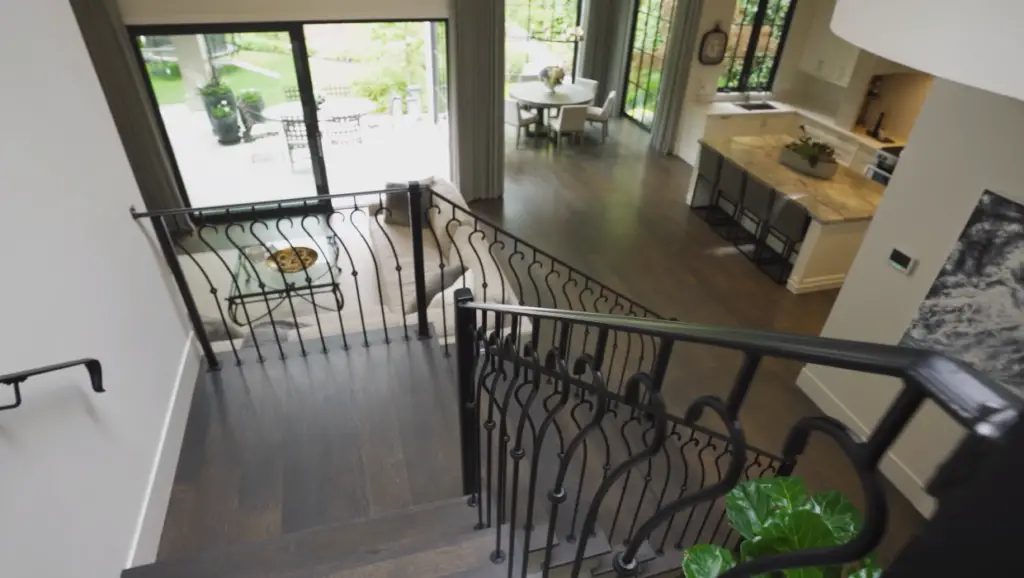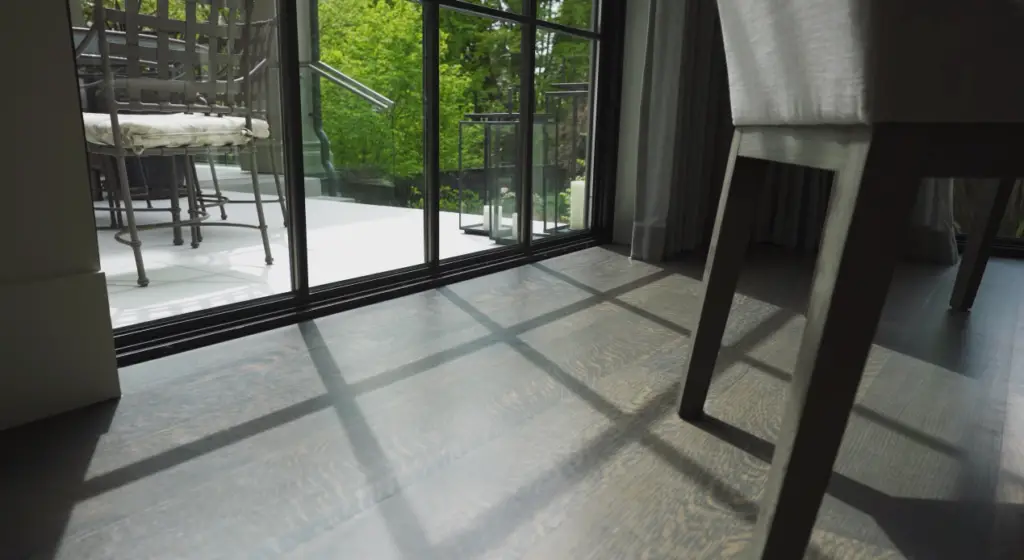Closing on a house is a huge milestone in anyone’s life. It’s an exciting time, but it can also be nerve-wracking, especially if you’re not sure what to expect. One of the most common questions we hear from our readers is “can you move into a house before closing?” So today, we’re going to break down the answer for you!
Closing Date vs. Move-in Date: What Is The Difference
The closing date and move-in date are two important dates for anyone involved in the home buying process, but there’s an important distinction between them.
The move-in date, on the other hand, is the day when the buyer can actually move their belongings into their new home.

It’s important to note that these dates don’t always occur on the same day. In many cases, the closing date will be prior to the move-in date as there may be several tasks that need to be completed before a buyer can take possession of the property. For example, if there are any repairs needed at the property they must be completed first and an inspection done before it can be occupied. Other factors such as mortgage financing or title issues could also delay a move-in date beyond when ownership changes hands.
In addition, buyers should consider other associated costs for both dates such as closing costs or rental fees if they will need to stay in a temporary living situation between the closing and move-in dates. As such, it’s important to plan ahead and understand the timeline of what needs to be done before both dates arrive.
When Can You Usually Move-In After Closing?
Generally speaking, you can usually move in either the same day or within a few days of closing. If you are using a mortgage loan to purchase the house, your lender will likely require that you have home insurance in place before they disburse funds for closing. This means that if you plan on moving in right away, it’s important to make arrangements with an insurance provider prior to closing.
The actual timing will depend on various factors including how quickly the title company is able to get all of the paperwork processed and any other delays associated with financing or inspections. In most cases, however, you should be able to move in shortly after signing your documents at closing.
It’s always best to discuss this issue with your real estate agent, lender, and title company prior to closing in order to confirm the expected timeline for moving in. You don’t want any surprises once you’ve already closed on a house!
In certain cases, you may also be able to have your belongings moved into the new home before you actually close. This can be especially helpful if you are coming from out of town or need extra time to coordinate movers or other logistics. Be sure to get permission from the seller first before bringing in furniture or boxes; most sellers won’t allow this until after closing has taken place.
No matter when you’re able to move-in, it’s important to remember that there will still be some tasks that need attention even after you close. This includes things like setting up utilities, changing locks, and getting a home inspection.

Contract Terms
Prior to closing, you and the seller should discuss when you can move in the home. This is typically outlined in the purchase contract, so be sure to review this document carefully before signing. The contract will usually include some type of occupancy clause that states when you are allowed to move into the new house.
It might also have other conditions such as whether or not utilities need to be turned on prior to moving in, who is responsible for setting up services, or any other rules about occupancy. Be sure to ask your real estate agent if you have any questions about these terms prior to signing the agreement.
Once all of your documents and paperwork are completed at closing, then it’s time to start moving! You’ll likely be able to move in shortly after closing, depending on the specific terms of your contract.
Compromise
Sometimes, the seller may want to delay your occupancy until a certain date. This could be due to a number of reasons such as needing extra time for repairs or renovations, having tenants in place that need to move out, or just wanting a little bit of extra time before you take possession.
In this case, it’s important to find an agreement that works for both parties. You might be able to reach a compromise where you can move in on an earlier date than what is specified in the contract, but still after the closing date.

Leaseback
In some cases, the seller may want to continue living in the home after you’ve closed on it. This is known as a leaseback, and it’s fairly common when homeowners need extra time to find a new place or if they just want to stay in the house until certain repairs or renovations are completed.
Leasebacks can be beneficial for both parties since it allows the seller more time while also allowing you to take ownership of your new home faster than if you had waited until they moved out completely. Be sure to read all paperwork carefully before signing, however, so that you understand what is expected of both parties during this transition period.
Occupancy Date
Regardless of whether there is a leaseback agreement or not, you should be aware of when your occupancy date officially begins. This is the date that you can start living in the home and is usually outlined in the purchase contract.
It’s important to remember that this date may still be several days after closing, so plan accordingly if you need to move-in by a certain deadline. In some cases, you may also be able to negotiate an earlier occupancy date with the seller; just make sure both parties are comfortable before signing any paperwork. [1]
Moving into a new home can be exciting, but it’s important to understand all of the details first. Be sure to review all documents carefully before closing and discuss any concerns with your real estate agent to make sure you’re both on the same page.
Closing Date vs. Move-in Date: What Factors Can Affect These Dates?
When it comes to signing a rental agreement, there are two important dates: the closing date and the move-in date. Knowing the difference between these dates is essential when signing a lease agreement — so what factors can affect them?
The closing date is when both parties agree to sign the contract and all paperwork is completed. It’s usually several days or even weeks before your actual move-in date. It’s important to be aware of this time frame in order to ensure that everything runs smoothly.

Depending on how far away the move-in date is with respect to the closing date, you may need to factor in things like time for repairs, upgrades, painting and other tasks that must be completed before you can move in.
These dates can also vary depending on your location. In some states, landlords are only allowed to increase the rent after a specified period of time — this could mean that your move-in date and closing date might be delayed if your landlord needs to wait for an extended period of time before renting out the property again.
Finally, when signing a lease agreement it’s important to ensure that both parties understand what’s expected from them and when everything should be done by. Doing so will help make sure that everything goes according to plan and that you can move in on time. This is especially true if either the closing date or move-in date needs to be adjusted due to any of the factors mentioned above. With both parties aware of what needs to be done and when, it’s much easier to ensure a smooth transition into your new home!
Moving Services
Moving can be stressful and time-consuming, so it’s important to make sure you find the right services when hiring help. Here are some things to consider before booking a moving service:
- Reputation – It’s crucial to do your research when looking for a reliable moving company. Check customer reviews online, ask friends and family who they used, and look up any complaints or claims against them at the Better Business Bureau. All of this will help you gauge whether or not the company is reputable and trustworthy.
- Cost – Make sure to compare prices between different companies in order to get the best deal for your move. If a price seems too good to be true, then it probably is — so always be sure to double-check the services they offer and make sure that everything you need is included in their quote.
- Insurance – Moving companies should have some form of insurance for any damages or losses, just in case something goes wrong during your move. Make sure to ask about their policy before signing anything and ask what their coverage entails.
- Availability – Depending on where you’re moving, availability may be an issue when trying to book a service. It’s best to call ahead of time and check that the company can accommodate your move and ensure that they’ll be able to fulfill all of your needs.

Rent Application
Applying for a rental property can seem like an intimidating process, but if you know what to expect it can make the whole experience much less stressful. Here are the key steps involved in the rent application process:
- Submit Application – Before submitting your application, make sure to double-check all of your information and ensure that everything is accurate. You may also need to submit some additional documents such as background or credit checks, so have those ready before applying.
- Documentation Review – Once you’ve submitted your application, it will usually take a few days for the landlord or property manager to review it and check all of your documentation. If any discrepancies arise, they will likely contact you in order to clarify.
- Interview – After your documents have been reviewed and accepted, you may be required to do a face-to-face interview with the landlord or property manager. This is an opportunity for them to get to know you better and ask any questions that weren’t answered in your application or documentation.
- Approval/Denial – The landlord or property manager will then make their decision as to whether they accept or deny your application based on all the information you’ve provided. If accepted, they’ll usually require you to sign a lease agreement before formally moving into the rental property.
A corresponding home purchase
When you’re buying or selling a home, there are several different steps involved in order to make sure the process is handled correctly and legally. Here’s what you need to know:
- Financing – If you’re buying a home, make sure to secure your financing before anything else. You’ll need to research lenders, compare interest rates, and decide on the best loan type for your needs before making any offers or commitments.
- Hire an Agent – Whether you’re buying or selling, it can be beneficial to hire a real estate agent who understands the local market and can provide valuable advice throughout the process. Make sure to interview potential agents beforehand so that you find someone who fits your needs.
- Make an Offer – Once you’ve secured financing and chosen a real estate agent, you can begin making offers on homes or listing your property for sale. Your agent should be able to help guide you through the negotiation process so that both parties come out with a fair deal.
- Closing – After all documents have been signed and fees paid, the closing process will take place where both buyers and sellers sign the final paperwork before officially transferring ownership of the property. It’s important to review any documents carefully before signing in order to make sure that everything is correct and legally binding. [2]
How to Sell Your House to Close Your Next Sale
Now that you know the basics, let’s dive into how to sell your house and close your next sale.
The first step is to determine the selling price of your home. You need to consider factors like market value, location, competition, condition of the home, etc. If you’re not sure what a fair price would be for your property, consult a real estate professional who can give you an accurate assessment.
Next, it’s time to get ready for showings! Get your home in tip-top shape — make all necessary repairs and spruce up the place with fresh paint or new landscaping if needed. Then it’s time to promote! Listing on local real estate websites, printing flyers, and holding open houses are all great ways to get the word out.

Finally, it’s time to negotiate with interested buyers. Be prepared to compromise — no buyer is going to pay exactly what you’re asking, after all. But if you can come to a reasonable agreement that both parties feel comfortable with, then you’ve got yourself a sale! Once an offer has been accepted and a contract signed, the next step is for the buyer to secure financing and collect the necessary documents.
Selling your home doesn’t have to be intimidating or overwhelming. When armed with the knowledge of the process and realistic expectations of what it will take from start to close, you can confidently move forward with your sale and officially become a homeowner.
Why would a buyer want access to a home before closing?
Having access to a home before closing can be hugely beneficial for buyers. For starters, it gives them the chance to get a feel for the property and make sure it’s exactly what they’re looking for. It also allows them to assess any potential problems that may need to be addressed prior to closing. Being able to see the home firsthand enables buyers to make an informed decision about their purchase before committing fully. Additionally, having access prior to close date could help in facilitating an easier transition into ownership after the sale is finalized. Lastly, it’s just nice being able to experience your new home before making it official!
Overall, pre-closing access can offer countless advantages that any buyer should consider taking advantage of!
Does a seller have to agree to let the buyer in early?
No, it’s not compulsory for a seller to grant early access – unless there is something written in the contract which states otherwise. It’s usually up to the seller to decide if they want to let the buyer in early or not. If they do agree, they might set out certain conditions and make sure that any extra costs are accounted for before signing anything. For example, if the buyer needs extra insurance coverage because of the early access, this would have to be added on top of the purchase price. Ultimately, it’s always best practice to discuss everything with your real estate agent first before signing any paperwork or agreeing to anything. They should be able to provide guidance and advice regarding these matters. [3]
It’s important to note that both parties must agree on any arrangement made prior to completion. If either side isn’t happy with something, they have the right to refuse it. So, make sure you are fully aware of all the terms and conditions before making a decision.

Is it common to let a buyer access the home before closing?
It is becoming more common for buyers to access the home before closing. This practice, known as a pre-closing walkthrough, allows the buyer to ensure that all repairs and improvements have been completed in accordance with the purchase agreement. It also gives them an opportunity to familiarize themselves with their new home before officially taking ownership. However, it is important to note that this does not always mean that the buyer will get full access; some sellers may restrict certain areas of the house or limit visits. Ultimately, it’s up to the seller and buyer to agree on what kind of pre-closing access they are comfortable with.
Most real estate agents recommend having a licensed contractor present when doing a pre-closing walkthrough. This ensures that any repairs or improvements are completed to code and helps the buyer feel more secure about their purchase. Additionally, it’s important for both parties to follow their state’s regulations regarding pre-closing access; in some cases, a formal document is required to confirm the walkthrough activities.
Ultimately, pre-closing walkthroughs can be beneficial for both buyers and sellers. Doing so allows the buyer to get a better understanding of the home before closing and gives them peace of mind that all agreed upon repairs and improvements have been completed according to plan. For this reason, many agents recommend having at least one pre-closing walkthrough as part of the home buying process.
FAQ
Who is responsible for repairs if the buyer moves in before closing?
In most cases, the seller is responsible for repairs that are needed up until closing. However, you should always check with your real estate attorney to make sure this is the case in your situation and that nothing has been agreed upon differently as part of the purchase agreement. It’s also important to keep in mind that any changes made by either party after a contract is signed may require an amendment. That being said, it’s usually best practice for both buyers and sellers to wait until the closing has taken place before any major repairs or renovations take place. This will help ensure there are no disputes about who will be responsible for these items down the line. [4]
Additionally, it’s worth noting that if a buyer moves in prior to closing but before any repairs take place, they are typically responsible for all damage caused during this time. This is why it’s always important to have a solid understanding of the agreement beforehand!
Ultimately, it’s always best to play it safe and consult your real estate attorney about who will be responsible for repairs before closing. That way there won’t be any unexpected surprises down the road!
What document do you use if the buyer wants to take possession of the home before the sale closes?
If the buyer wants to take possession of the home before the sale closes, you should use an occupancy agreement. This document allows a buyer to move into and live in a property before closing on a sale. The agreement outlines the responsibilities of both parties, including any fees or rent that is due during this period. It also sets out what happens if either party defaults on their obligations under the agreement. An occupancy agreement can be beneficial for all involved as it provides certainty and clarity around who has rights over what when it comes to occupying a property. Make sure to get legal advice before signing any documents like these!
How many days before closing should the seller move out?
This depends on your particular contract, but typically the seller should plan to move out of the house within 10 days after closing. Some contracts may specify earlier or later timelines, so make sure to double-check with your real estate agent or attorney. Before closing, you should also make sure all your belongings are removed from the property as well as any debris and garbage left behind. This will help ensure a smooth transition for both parties. [5]
Useful Video: What Not to do Before Closing on a House
Conclusion
In conclusion, it is possible to move into a house before the closing date, but it is not always advisable. If you do choose to do so, make sure that you are aware of all the risks and additional expenses associated with moving in early. Additionally, be sure to communicate your decision with your real estate agent so that they can ensure all paperwork is handled correctly and legally. Finally, remember to take extra precautions as far as insurance coverage goes should any unforeseen damage occur. Happy house hunting!
References
- https://www.banks.com/articles/real-estate/closing-date-vs-move-in-date/
- https://reedwilsoncase.com/is-the-closing-date-in-a-real-estate-contract-the-date-you-close/
- https://orchard.com/blog/posts/getting-access-to-the-home-before-closing-what-can-the-buyer-do
- https://www.thestar.com/life/homes/2022/12/30/who-pays-if-a-sold-home-is-damaged-before-its-closing-date.html
- https://homeguides.sfgate.com/normal-time-move-after-closing-house-48896.html














Leave a Reply